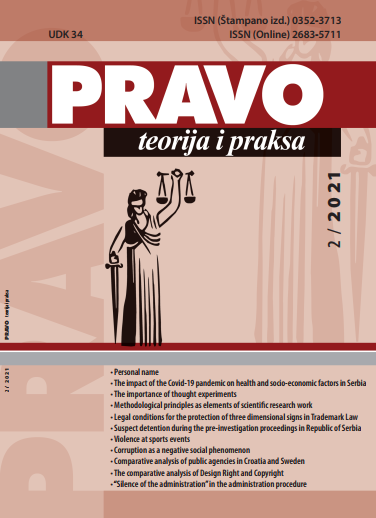CORRUPTION AS A NEGATIVE SOCIAL PHENOMENON
CORRUPTION AS A NEGATIVE SOCIAL PHENOMENON
Author(s): Saša KovačevićSubject(s): Criminal Law
Published by: Pravni fakultet za privredu i pravosuđe u Novom Sadu
Keywords: corruption; society; prevention; values; reporting
Summary/Abstract: This paper analyzes the problem of corruption as a phenomenon, a negative and illegal social phenomenon, which is contrary to the rules of normal functioning of the society. It implies to very serious consequences which can produce a real threat and the possibility of adopting corruption as a negative model of life and activity, that is, the functioning of the society, personified in several corrupt individuals and groups. The state continuously applies anti-corruption mechanisms. However, a phenomenon that is difficult to eradicate is the multitude of individual cases of offering, giving, or soliciting bribes in certain everyday life circumstances. We are worried about the researches indicating that a large number of the state institutions are exposed to corruption, including the officials employed in these institutions using corrupt actions during the performance of their regular work. The basic question that arises is whether a certain number of citizens who do not accept corruption over time become “antisocial” in relation to the individuals representing a part of the society which accepts it as an adopted model, or a way of living and normal functioning being contrary to law and the commitment of the state in the fight against corruption. The aim of the research is how to prevent the adoption of the corruption model as a “value”, by reporting it to the competent authorities in Republic of Serbia, including the fight against corruption through the socalled “Romanian model”, proved to be very effective in fighting corruption.
Journal: Pravo teorija i praksa
- Issue Year: 38/2021
- Issue No: 2
- Page Range: 100-113
- Page Count: 14
- Language: English

